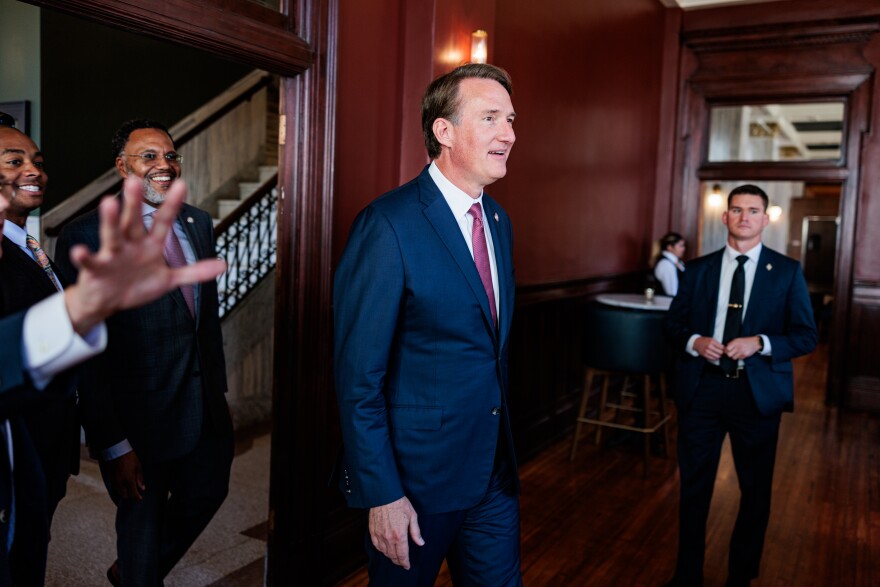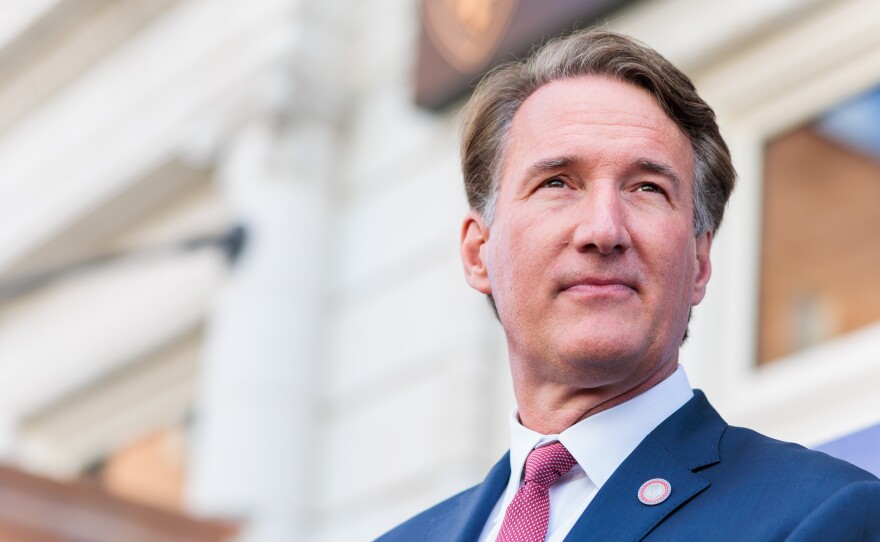About 1,600 Virginia voters will stay off the rolls after a Wednesday U.S. Supreme Court order, but its long-term effects and possible implications for election challenges are unclear, say academics and advocates.
Less than a week after Virginia made a defense against two lawsuits, the high court ruled to prevent a lower court’s order to pause and reverse Virginia’s voter purge from going into effect. An appeals court upheld that district court’s ruling on Sunday.
The granting of an emergency appeal means a group of 1,600 suspected noncitizens will remain off Virginia’s voter rolls after they’d been removed by an “enhanced” voter maintenance process Republican Gov. Glenn Youngkin ordered. He told state election officials to remove people daily, saying he was targeting people who identified as noncitizens during DMV transactions.
Republicans nationwide have said that noncitizens are voting in the 2024 election, a claim not supported by evidence. Court records in Virginia don’t show noncitizens being charged with illegally voting in the last 20 years. A study by the Brennan Center for Justice said only 2 of 42 jurisdictions it analyzed had instances of noncitizen voters in the 2016 election.
Former President Donald Trump has claimed “millions” of noncitizens voted in that election, which he won.
Illegally voting as a noncitizen can carry charges of perjury and result in deportation.
On Aug. 7, Youngkin issued an executive order directing the agencies maintaining lists of registered voters to do it more frequently. EO 35 claimed that since January 2022, Virginia had removed 6,303 people for saying they were a noncitizen at the DMV, either on purpose or by accident. The number could be smaller because of the way that Virginia tracks those records, an administration official told VPM News.
The governor’s order was challenged by the U.S. Department of Justice and a coalition of Virginia civic groups in early October, under the federal National Voter Registration Act’s 90-day “quiet period.” The 1993 law says states cannot remove voters systematically from voter rolls in that time frame. Aug. 7, the day it was issued, was exactly 90 days before Election Day, leading to speculation that it was intended to trigger a court case.
The Supreme Court did not give a rationale for issuing the stay in its order; it noted that Associate Justices Sonia Sotomayor, Elena Kagan and Ketanji Brown Jackson voted to deny Virginia’s request. Ultimately the court’s order — and Virginia’s enhanced purge process — could end if it later declines to review the case.
In the immediate term, it’s unclear what nationwide effect of this will have on voter registrations. Bertrall Ross, director of the Karsh Center for Law and Democracy at the University of Virginia, wrote in an email that the NVRA would prevent people being removed from voter lists.
“This process takes much longer than the six days we have until the general election,” he wrote, adding that it could mean purges of voter rolls in the months before an election, depending on how the Supreme Court resolves the question.
“If, for example, the Supreme Court holds that state actors can purge the voter rolls of suspected non-citizens anytime before an election, then states will be permitted [to] purge voter rolls 90 days before the next election after the Supreme Court’s decision, which would probably be the 2026 midterms.”

Amanda Wintersieck, director of the Institute for Democracy, Pluralism and Community Empowerment at Virginia Commonwealth University, said the messaging around noncitizens is a partisan strategy to lay groundwork for challenging the election results after Tuesday.
“I would say that this is a grand narrative and that it's not a new narrative,” said Wintersieck. “We're seeing a full court press for nearly a year in advance of this election: setting up legal arguments and denialism for the event that he doesn't win the election.”
Protect Democracy, a nonprofit founded by two lawyers who worked in President Barack Obama’s administration, said in an email Tuesday that the new processes are laying the groundwork to overturn election results.
Anthony Ashton, associate general counsel for the NAACP, raised the same concern in a press conference Wednesday.
Youngkin, speaking to reporters in Petersburg on Wednesday, didn’t directly answer a question from VPM News on whether this would enable challenges to election results.
“I think the bottom line is we have a process in Virginia that's been literally run for 18 years. It is a very straightforward process,” he said. Virginia’s voter maintenance law was first cleared by the Department of Justice in 2006, during Democratic Gov. Tim Kaine’s tenure. The DOJ sued Virginia in 1995 to have it comply with the NVRA.
It’s not clear how many citizens were removed from voter rolls. Brent Ferguson, a lawyer for the civic groups, said in an email that numbers Virginia presented to SCOTUS were first seen by the plaintiffs — Virginia Coalition for Immigrant Rights, League of Women Voters of Virginia, League of Women Voters of Virginia Education Fund and African Communities Together — Friday in the state’s appeal to the U.S. 4th Circuit Court of Appeals.
Virginia said in its emergency filing that 600 of the 1,600 “personally informed Virginia’s Department of Motor Vehicles (DMV) that they are not citizens,” and 1,000 presented residency documents for noncitizens, and were identified in an immigration database as noncitizens.
“We are not completely certain if or how these numbers add up,” said Ferguson. “Part of the problem here is that we’ve received only a small amount of information from the defendants, and it’s impossible to verify – most of it is just in the form of unsupported assertions.”
Ferguson told VPM News last week that the plaintiffs had been seeking information from the administration since Youngkin’s order was issued in August, but the administration “stonewalled.”
“There's been no conclusive evidence that any of the voters removed are actually not citizens,” Ferguson said Wednesday. “We've spoken with dozens of voters, who are eligible citizens, who have been removed.”
Petersburg General Registrar Dawn Wilmoth said she had at least one U.S. citizen come in to re-register after she was removed. The voter said she had visited the DMV, but didn’t remember marking a box indicating she wasn’t a citizen.
If voters did not re-register by Oct. 15, they will not be able to vote by mail. They will have to same-day register at their early voting or Election Day polling stations and cast a provisional ballot — which will be evaluated by their local board of elections for validity.




















